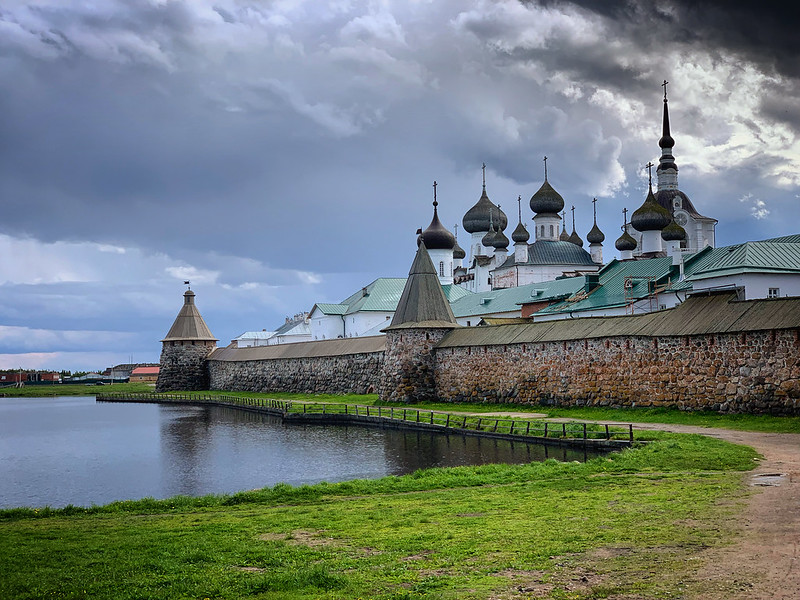
The weather in Russia is rather modest, but can also be pleasant in June. Image: View of the Solovetski monastery, Solovki, Russia, June 2019. By Sergej Gussev via flickr.com. License: Creative Commons CC BY 2.0 Deed
Secondary financial sanctions are hindering commodity trade between Russia and China. More and more traders are therefore using the stablecoin Tether – and modernizing their payment system at the same time.
As Russian commodity companies and their Chinese trading partners increasingly have problems making bank transfers, they are increasingly settling payments using the stablecoin USDT (Tether).
The Canadian news service BNN Bloomberg reports, based on anonymous, high-ranking employees, that two Russian metal producers are not subject to sanctions, but have nevertheless started using Tether when they deliver metals to China or import machines from there.
The limits of financial sanctions
This report reveals both the effectiveness and limitations of financial sanctions. Many Russian companies that trade in raw materials such as steel, nickel or wood are having problems receiving money for their deliveries or purchasing raw materials and equipment – even if they themselves are not subject to sanctions and even if their trading partners operate in a country such as China, where Western financial sanctions do not apply.
The reason lies in the secondary sanctions imposed by the USA. These threaten to cut Chinese banks off from the dollar system if they process payments for sanctioned companies. It is probably easier and less damaging for Chinese banks to simply reject Russian customers across the board, rather than examining on a case-by-case basis which transactions are permitted and which are not.
Stablecoins come in handy here. Not only do they work without banks – and therefore without direct or indirect sanctions – the transfers only take a few seconds and hardly cost any fees. Stablecoins are not just a tool for circumventing sanctions – Chinese and Russian companies are using them to modernize their payment systems almost by accident.
Not only sanction-proof – but also more efficient
That’s why Ivan Kotzov, a Dubai-based Russian mathematician who works with stablecoins with Resolv Labs, explains that it’s now common to use stablecoins in countries that have problems with dollar liquidity or capital controls, and not just in commodity trading.
The Russian Central Bank supports the practice, albeit with reservations. In November, Governor Elvira Nabiullina told the Duma that she supports experiments with crypto payments in international payments. However, she limits acceptance to cross-border trade and does not allow advertising for it.
This news reinforces what the Wall Street Journal reported on April 1, namely that Russian smugglers are increasingly using Tether to circumvent sanctions on weapons and drone parts. Stablecoins have become “indispensable to the Russian war machine.”
The sanctions are therefore having a greater impact than some expected, and secondary sanctions in particular are putting Russian companies at a global competitive disadvantage. But the greater the pain they cause, the more companies are turning to stablecoins, especially the Tether dollar, which have now become the means of choice for circumventing sanctions and capital controls.
The price that BRICS countries like China and Russia are paying is that they are not getting away from the dollar as they would like, but are becoming even more dependent on it. Crypto does not weaken the dollar – it strengthens it. At the same time, the sanctions are forcing Russia and China to use more efficient payment systems that are years ahead of those used in Europe and the US. The illusion that sanctions are still effective in the age of cryptocurrencies could have bitter consequences for the West.
Discover more from BitcoinBlog.de – the blog for Bitcoin and other virtual currencies
Sign up to receive the latest posts via email.
Source: https://bitcoinblog.de/2024/06/05/tether-dollar-immer-wichtiger-fuer-russisch-chinesischen-handel/


